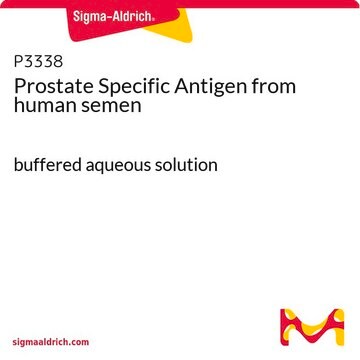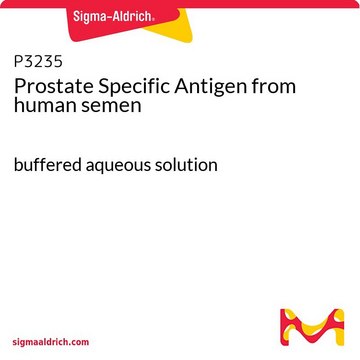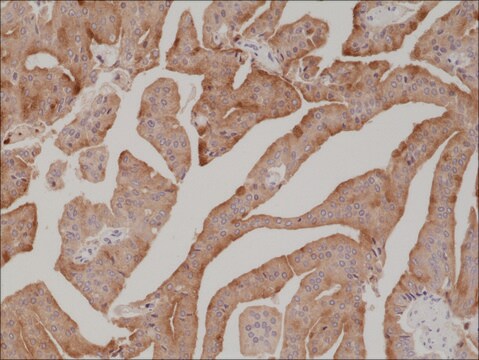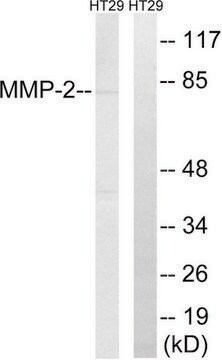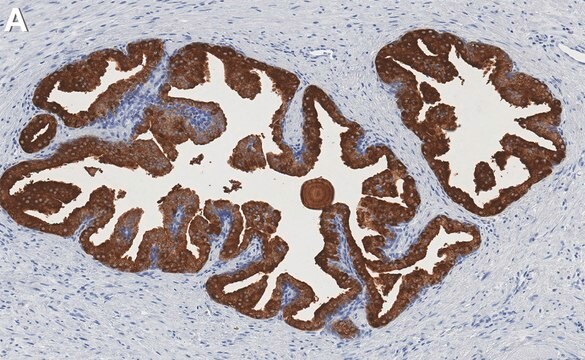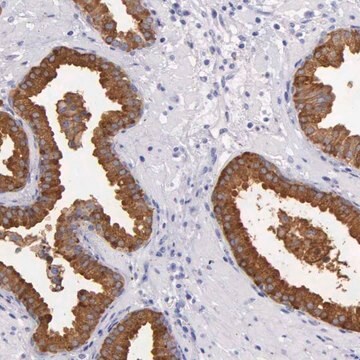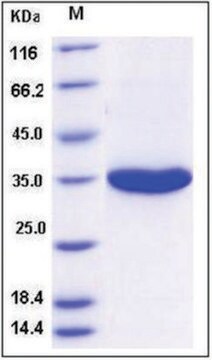SAB4501531
Anti-Prostate-specific Antigen antibody produced in rabbit
affinity isolated antibody
Synonim(y):
γ-seminoprotein, P-30 antigen, kallikrein- 3, kallikrein-related peptidase 3, prostate-specific antigen
About This Item
Polecane produkty
pochodzenie biologiczne
rabbit
Poziom jakości
białko sprzężone
unconjugated
forma przeciwciała
affinity isolated antibody
rodzaj przeciwciała
primary antibodies
klon
polyclonal
Formularz
buffered aqueous solution
masa cząsteczkowa
antigen 28 kDa
reaktywność gatunkowa
human
stężenie
~1 mg/mL
metody
ELISA: 1:20000
immunohistochemistry: 1:50-1:100
western blot: 1:500-1:1000
numer dostępu NCBI
numer dostępu UniProt
Warunki transportu
wet ice
temp. przechowywania
−20°C
informacje o genach
human ... KLK3(354)
Opis ogólny
Immunogen
Zakres immunogenu: 81-130
Działania biochem./fizjol.
Cechy i korzyści
Postać fizyczna
Oświadczenie o zrzeczeniu się odpowiedzialności
Nie możesz znaleźć właściwego produktu?
Wypróbuj nasz Narzędzie selektora produktów.
Kod klasy składowania
10 - Combustible liquids
Klasa zagrożenia wodnego (WGK)
nwg
Temperatura zapłonu (°F)
Not applicable
Temperatura zapłonu (°C)
Not applicable
Wybierz jedną z najnowszych wersji:
Certyfikaty analizy (CoA)
Nie widzisz odpowiedniej wersji?
Jeśli potrzebujesz konkretnej wersji, możesz wyszukać konkretny certyfikat według numeru partii lub serii.
Masz już ten produkt?
Dokumenty związane z niedawno zakupionymi produktami zostały zamieszczone w Bibliotece dokumentów.
Klienci oglądali również te produkty
Global Trade Item Number
| SKU | GTIN |
|---|---|
| SAB4501531-100UG | 4061837016257 |
Nasz zespół naukowców ma doświadczenie we wszystkich obszarach badań, w tym w naukach przyrodniczych, materiałoznawstwie, syntezie chemicznej, chromatografii, analityce i wielu innych dziedzinach.
Skontaktuj się z zespołem ds. pomocy technicznej